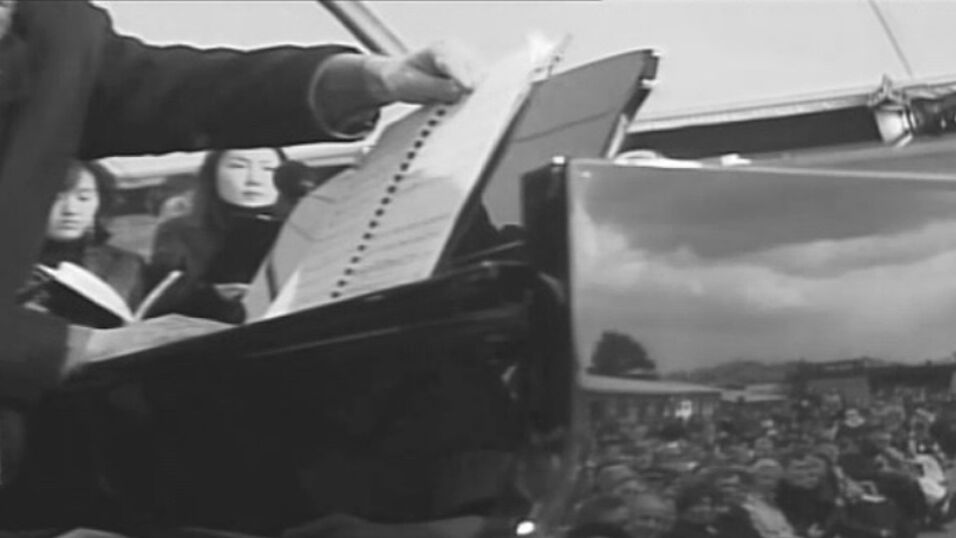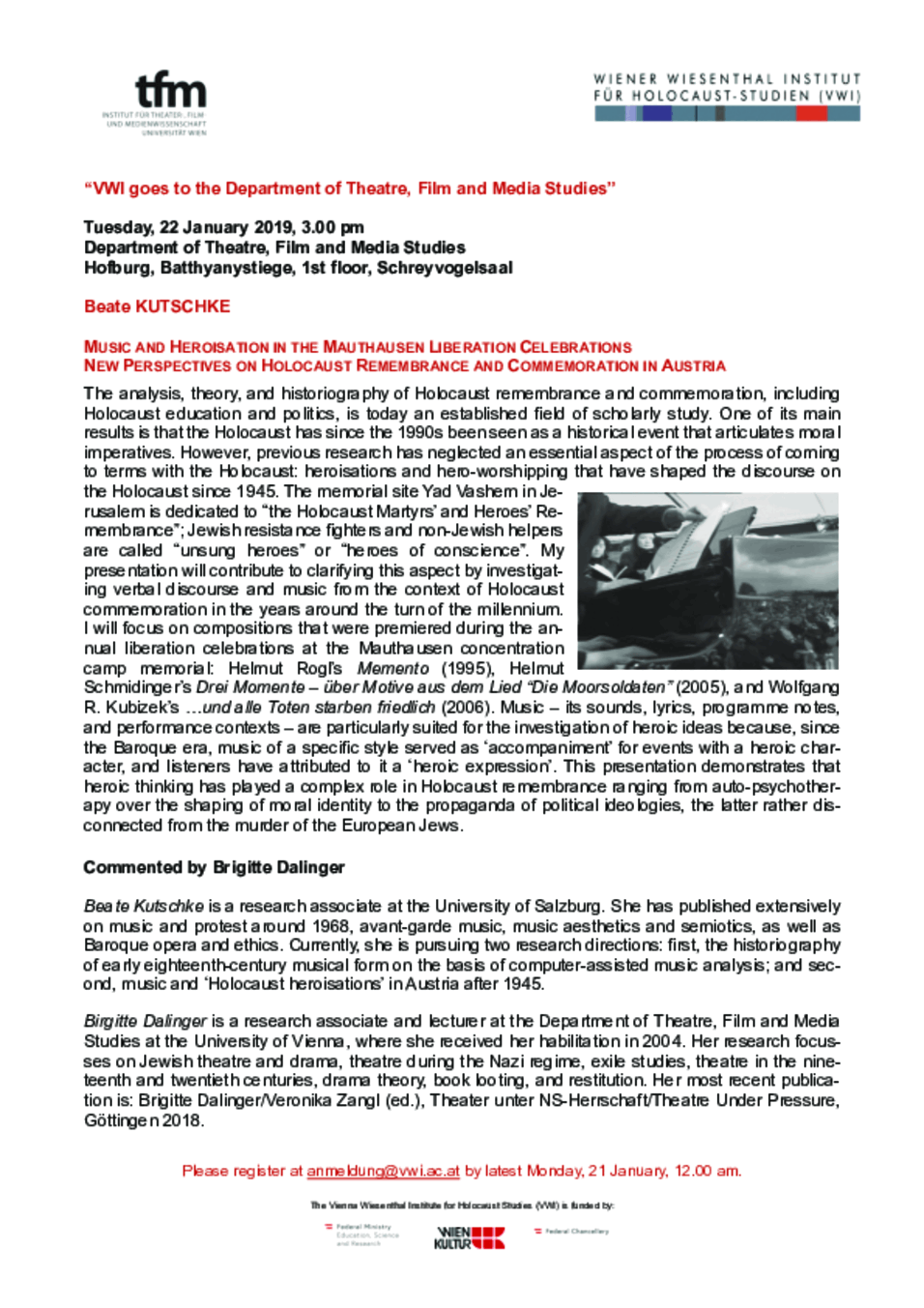Music and Heroisation in the Mauthausen Liberation Celebrations.
New Perspectives on Holocaust Remembrance and Commemoration in Austria.
“VWI goes to the Department of Theatre, Film and Media Studies”
Tuesday, 22nd January, 3pm
Hofburg | 1st floor | Schreyvogelsaal
Batthyanystiege, 1010 Vienna
The analysis, theory, and historiography of Holocaust remembrance and commemoration, including Holocaust education and politics, is today an established field of scholarly study. One of its main results is that the Holocaust has since the 1990s been seen as a historical event that articulates moral imperatives. However, previous research has neglected an essential aspect of the process of coming to terms with the Holocaust: heroisations and hero-worshipping that have shaped the discourse on the Holocaust since 1945. The memorial site Yad Vashem in Jerusalem is dedicated to “the Holocaust Martyrs’ and Heroes’ Re-
membrance”; Jewish resistance fighters and non-Jewish helpers are called “unsung heroes” or “heroes of conscience”. My presentation will contribute to clarifying this aspect by investigating verbal discourse and music from the context of Holocaust commemoration in the years around the turn of the millennium.
I will focus on compositions that were premiered during the annual liberation celebrations at the Mauthausen concentration camp memorial: Helmut Rogl’s Memento (1995), Helmut Schmidinger’s Drei Momente – über Motive aus dem Lied “Die Moorsoldaten” (2005), and Wolfgang R. Kubizek’s ... und alle Toten starben friedlich (2006). Music – its sounds, lyrics, programme notes, and performance contexts – are particularly suited for the investigation of heroic ideas because, since the Baroque era, music of a specific style served as ‘accompaniment’ for events with a heroic character, and listeners have attributed to it a ‘heroic expression’. This presentation demonstrates that heroic thinking has played a complex role in Holocaust remembrance ranging from auto-psychother- apy over the shaping of moral identity to the propaganda of political ideologies, the latter rather dis- connected from the murder of the European Jews.
Commented by Brigitte Dalinger
Beate Kutschke is a research associate at the University of Salzburg. She has published extensively on music and protest around 1968, avant-garde music, music aesthetics and semiotics, as well as Baroque opera and ethics. Currently, she is pursuing two research directions: first, the historiography of early eighteenth-century musical form on the basis of computer-assisted music analysis; and second, music and ‘Holocaust heroisations’ in Austria after 1945.
Birgitte Dalinger is a research associate and lecturer at the Department of Theatre, Film and Media Studies at the University of Vienna, where she received her habilitation in 2004. Her research focusses on Jewish theatre and drama, theatre during the Nazi regime, exile studies, theatre in the nineteenth and twentieth centuries, drama theory, book looting, and restitution. Her most recent publication is: Brigitte Dalinger/Veronika Zangl (ed.), Theater unter NS-Herrschaft/Theatre Under Pressure, Göttingen 2018.
Please register at anmeldung@vwi.ac.at by latest Monday, 21 January, 12.00 am.
The Vienna Wiesenthal Institute for Holocaust Studies (VWI) is funded by the Austrian Federal Ministry for Education, Science and Research; Wien Kultur and Federal Chancellery of Austria.


